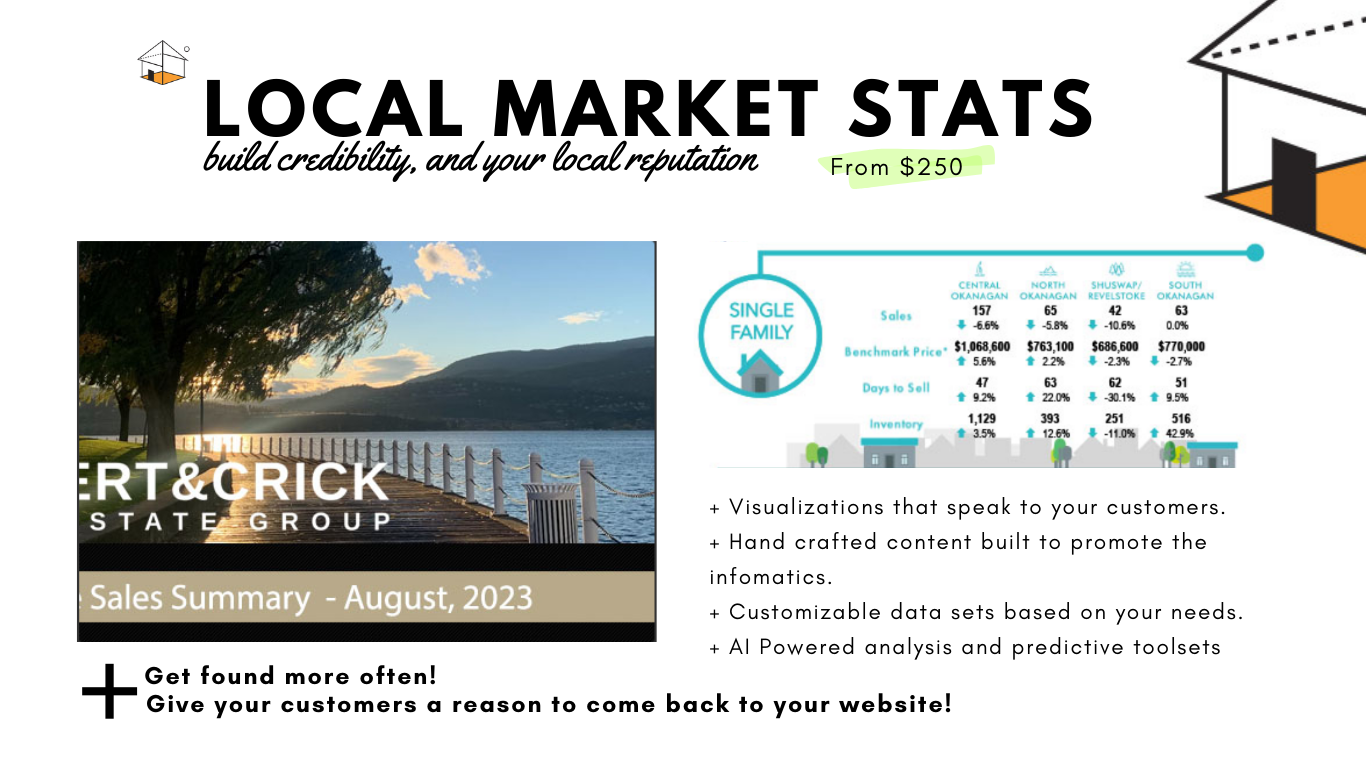In today's fast-paced digital world, the real estate industry is no exception when it comes to the importance of establishing a strong online presence. For real estate professionals, having an effective website is not just a luxury; it's a necessity. In this article, we will explore what makes a good website for realtors, emphasizing the key elements that can elevate their online presence and help them succeed in a competitive market.
1. Responsive Design: A Must-Have for Websites for Realtors
The foundation of a successful realtor's website lies in its responsiveness. In an era where people access websites on various devices, from smartphones to laptops and everything in between, having a responsive design is non-negotiable. A responsive website ensures that the site adapts seamlessly to different screen sizes, delivering a consistent and user-friendly experience. When potential clients can effortlessly navigate your website whether they're on a mobile device or a desktop computer, you increase your chances of capturing their attention and keeping them engaged.
2. User-Friendly Navigation: Guiding Visitors with Ease
Navigating a website should be intuitive, and this is especially crucial for websites for realtors. A well-organized menu, clear search functionality, and easy-to-access property listings are essential. Clients visiting your website should quickly find what they're looking for without frustration. Imagine the positive impression you'll leave on potential clients when they can seamlessly explore your listings, agent profiles, and contact information.
3. High-Quality Visuals: Captivating Your Audience
In the real estate industry, a picture is indeed worth a thousand words. High-resolution images and compelling videos of your listed properties are your secret weapons. Professional photography and videography can make properties truly shine online. Moreover, ensuring that these visuals load quickly and are optimized for the web will contribute to a fast website speed, keeping visitors engaged and preventing them from bouncing away.
4. Comprehensive Property Listings: The Heart of Realtor Websites
Websites for realtors should serve as a comprehensive database of available properties. Each listing should provide a wealth of information, including property specifications, location details, pricing, and, of course, striking images. To enhance user experience, consider implementing an advanced search feature that allows visitors to filter results based on their preferences. Regularly updating your listings ensures that clients are always viewing the most accurate and current information, building trust in your credibility.
5. Informative Blog: Establishing Authority
A blog is a potent tool for realtors looking to establish their authority in the real estate world and improve their website's search engine optimization (SEO). By creating informative and engaging content related to buying, selling, and investing in real estate, you provide valuable insights to your audience. Topics can include market trends, tips for home buyers and sellers, and neighborhood guides. Not only does this add value to your website, but it also keeps visitors coming back for more.
6. Testimonials and Reviews: Building Trust
Trust is a cornerstone of the real estate industry, and displaying client testimonials and reviews on your website is an effective way to build it. Genuine feedback from satisfied clients speaks volumes about your professionalism and track record. When potential clients see positive experiences from others, they're more likely to trust you with their real estate needs.
7. Contact Forms / SYNCRO and Calls to Action: Encouraging Interaction
Contact forms should be readily accessible throughout your website, making it easy for visitors to reach out to you. Additionally, strategically placed calls to action (CTAs) can guide visitors to take the next step, whether it's scheduling a consultation, signing up for email updates, or requesting more information. These interactive elements help you capture leads and turn them into clients.
8. Neighborhood Information: Showcasing Local Knowledge
Realtors often emphasize the importance of location, and your website should reflect that. Provide valuable information about the neighborhoods you serve, such as details about schools, local amenities, transportation options, and market trends. Demonstrating your local knowledge can help potential clients make informed decisions about where they want to live.
9. Social Media Integration: Expanding Your Reach
Integrating your website with your social media profiles can expand your online reach. By including social sharing buttons and live feeds from platforms like Facebook, Instagram, and Twitter, you encourage visitors to connect with you on these channels. This is an effective way to keep them informed about new listings, market updates, and other real estate news.
10. Mobile-Friendly Features: Catering to the Mobile Audience
With the increasing use of smartphones, it's crucial to incorporate mobile-friendly features on your website. Include elements like click-to-call buttons for easy contact and virtual property tours to provide an immersive experience for mobile users. Ensuring that your website functions seamlessly on mobile devices is essential for capturing the growing number of clients who use their phones to search for properties.
Conclusion
Websites for realtors are the digital storefronts that showcase their professionalism, expertise, and available listings. A responsive design, user-friendly navigation, high-quality visuals, comprehensive property listings, and other key elements discussed in this article can set the stage for a successful online presence. In an industry where first impressions matter, investing in the quality of your website can be the key to long-term success and connecting with potential clients effectively.


 Mon-Fri: 8:30-5:00
Mon-Fri: 8:30-5:00 #7 3185 Via Centrale, Kelowna BC
#7 3185 Via Centrale, Kelowna BC





